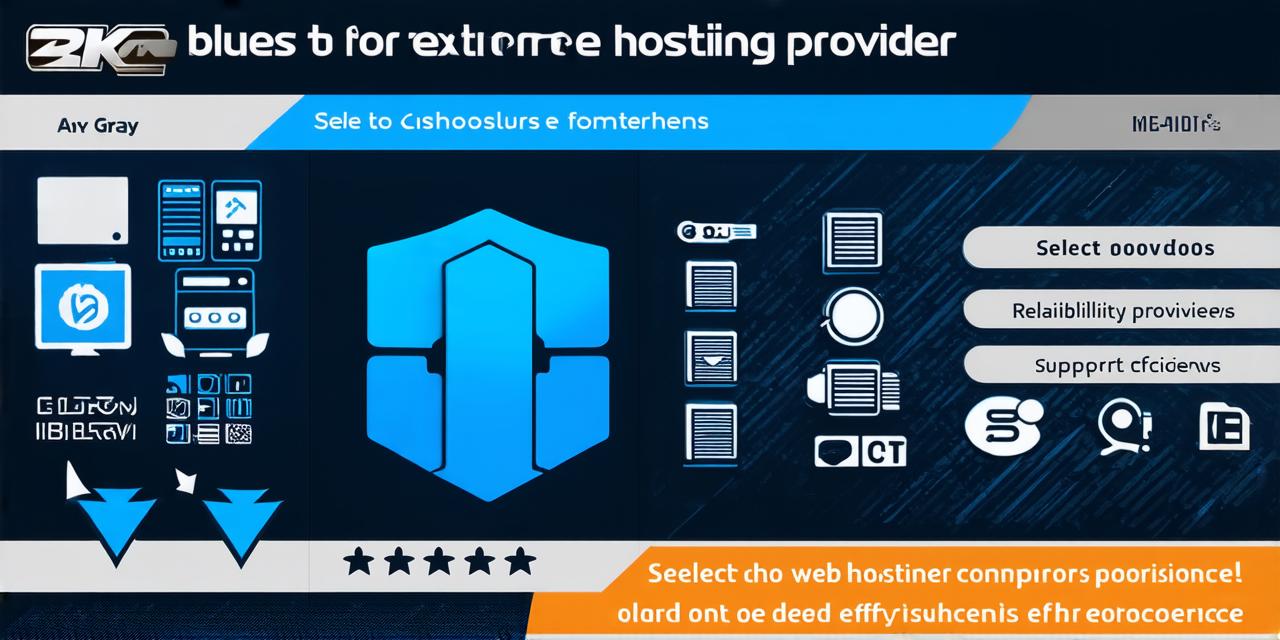1. Determine Your Web Hosting Needs
Before you start comparing web hosting providers, you need to determine your website’s requirements.
- Type of website:
- Traffic:
- Security:
- Scalability:
- Support:

Is it a blog, e-commerce site, or a business website? Different types of websites have different hosting requirements.
How much traffic do you expect your website to receive? This will help you determine the type of hosting plan that suits your needs.
Do you require additional security features such as SSL certificates and firewalls?
Will your website’s traffic grow in the future, and if so, do you need a scalable hosting plan?
What level of support do you require? Some providers offer 24/7 support, while others may have limited availability.
1. Compare Web Hosting Providers
There are many web hosting providers to choose from, each with its own unique features and pricing plans.
- Bluehost:
- SiteGround:
- A2 Hosting:
- HostGator:
Bluehost is a popular choice for WordPress websites due to its user-friendly interface and reliable performance. They offer various hosting plans, including shared hosting, dedicated hosting, and managed WordPress hosting.
SiteGround is known for its fast and reliable hosting services, with excellent uptime and customer support. They offer three hosting plans: StartUp, GrowBig, and GoGeek.
A2 Hosting offers high-performance hosting services with a focus on speed and reliability. They have various hosting plans to suit different budgets and needs.
HostGator is a reliable and affordable web hosting provider with a variety of hosting plans, including shared hosting, VPS hosting, and dedicated hosting.
1. Consider Security Features
Security should be a top priority when selecting a web hosting provider.
- SSL certificates:
- Firewalls:
- Malware scanning:
- DDoS protection:
These encrypt data transmitted between your website and visitors, ensuring that sensitive information such as login details and credit card numbers are secure.
Firewalls help prevent unauthorized access to your website by blocking malicious traffic.
Regular malware scans can help detect and remove malware from your website before it causes any harm.
Distributed Denial of Service (DDoS) attacks can be devastating for websites, causing downtime and loss of revenue. Look for a provider that offers DDoS protection to prevent such attacks.
1. Choose the Right Pricing Plan
Pricing plans vary widely among web hosting providers, and it’s essential to choose the right one for your needs.
- Price:
- Features:
- Renewal terms:
- Payment options:
Compare the prices of different plans from various providers to find the most affordable option.
Consider what features are included in each plan and whether they meet your requirements.
Some providers offer discounts for longer renewal terms, so it’s essential to consider this when making a decision.
Look for payment options that suit your needs, such as monthly payments or yearly payments.
1. Evaluate Customer Support
Customer support is essential when selecting a web hosting provider.
- Availability:
- Responsiveness:
- Knowledge:
- Language:
Look for providers that offer 24/7 customer support or at least have a help desk open during business hours.
Test the provider’s response time by sending a support ticket or calling their customer support team.
Ensure that the customer support team has the necessary knowledge and expertise to resolve any issues that may arise.
Look for providers that offer support in your preferred language, if needed.
1. Monitor Performance and Uptime
Performance and uptime are critical factors to consider when selecting a web hosting provider.
- Load time:
- Uptime:
- Server response time:
Load time measures how long it takes for your website to load, and fast load times are essential for user experience and search engine optimization (SEO).
Uptime measures the percentage of time that your website is available online, and high uptime is essential for a reliable website.
Server response time measures how long it takes for your website’s server to respond to requests, and fast server response times are essential for good performance.
1. Choose a Scalable Solution
As your website grows, you may require additional resources such as more storage space or bandwidth.
- Look for a web hosting provider that offers scalable solutions that allow you to easily upgrade or downgrade your hosting plan based on your needs.
- Some providers offer automatic scaling options that automatically adjust your hosting resources based on your website’s traffic.
1. Consider Backup and Restore Options
Data loss can happen to any website, so it’s essential to have a backup and restore solution in place.
- Look for a web hosting provider that offers regular backups of your website data and the ability to easily restore your website in case of data loss or corruption.
- Some providers also offer automated backup solutions that automatically create backups on a regular basis.
1. Choose a Reliable Provider with Good Reputation
Finally, it’s essential to choose a web hosting provider that has a good reputation and is reliable.
- High uptime rates:
- Customer support:
- Security:
Uptime is essential for a reliable website, so look for providers with high uptime rates.
Good customer support is essential for resolving issues quickly and efficiently, so look for providers with responsive and knowledgeable customer support teams.
Look for providers that have robust security measures in place to protect your website from potential threats.
Summary
Selecting the right web hosting provider is essential for a successful website. Consider factors such as performance, uptime, security, pricing, customer support, scalability, backup and restore options, and reliability when choosing a provider. By following these tips, you can find a reliable and affordable web hosting solution that meets your website’s hosting requirements.



